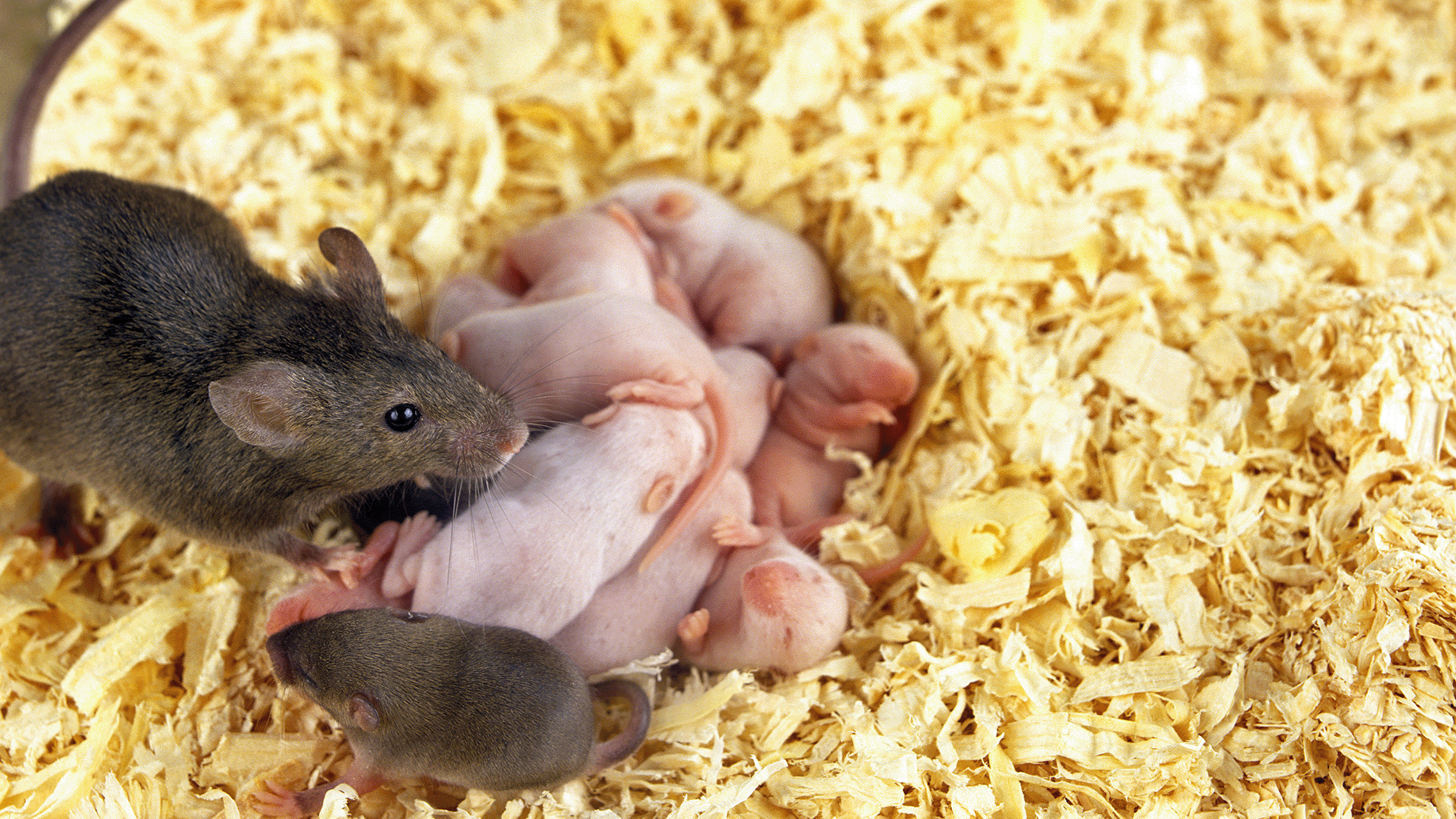
Weaning Rodents
Emory University has a policy (Policy 307 - Weaning Rates, Mice and Voles) that governs the weaning of rodents at Emory research facilities including DAR and Emory National Primate Research Center (EPC). The following paragraphs are excerpts of the policy. To review the entire policy, the download link is at the bottom of this page.
Overview
Purpose
This policy describes the procedures for weaning rats (Rattus norvegicus), mice (Mus musculus) and voles (Microtus ochrogaster). It applies to all researchers who maintain breeding colonies at Emory and/or obtaining pregnant females, from outside sources, that will give birth at Emory. The purpose of the policy is to minimize adverse events associated with housing newly weaned animals.
Training Requirements
Training is required for all personnel who breed and wean their own mice, rats or voles. Training is available through the Division of Animal Resources (DAR) at both the Yerkes National Primate Center and the Emory University main campus. An online weaning training is required for personnel involved in breeding rats or mice at SOM-DAR prior to protocol approval (http://www.dar.emory.edu/pi/index.php). Hands on in person weaning training at Yerkes is done after protocol approval. Please see Emory IACUC Education and Training Policy for details.
Responsibilities
It is expected that both laboratory and DAR staff will provide appropriate care to all research animals on an ongoing basis. However, in situations where laboratory staff are breeding and weaning mice, rats and voles, the laboratory is responsible for correctly setting up weanlings in new cages as described below. Once these animals are weaned, primary responsibility for their daily care shifts to the DAR animal care staff. However, as is the case in general, laboratory personnel are responsible for reporting to DAR any animal care issues that they observe as they are conducting other procedures with the research animals.
Special Circumstances
The procedures (outlined in detail in the policy) provide for the the baseline standard for weaning of normal, healthy mouse, vole and rat strains/lines. However, it is understood that not all strains/lines fall within this category; some are more fragile. In these circumstances it is considered best practice for the laboratory staff to work with veterinarian and animal care personnel to develop specific programs of care for these strains. In these instances, the standard of care must be detailed in the IACUC protocol; this may entail amendment of the approved protocol. Charges may apply if additional care is required.
Issues to consider when developing a standard of care for a fragile strain/line include but are not limited to the following:
- Age of weaning past 24 days of age
- Length of provision of water bottle past standard of care
- Addition of supplemental food/water sources such as hydration or nutrient gels
- Additional checks by the lab personnel
- Other considerations
Failure to Thrive Animals
If weaning aged animals (24 days old) are too small to be weaned, veterinary personnel should be contacted. Veterinary staff can assess the animals and provide a temporary veterinary weaning extension for individual cages, if appropriate. These weaning extensions will allow the smaller animals to remain with their parent(s) (beyond the typical weaning period) to allow the animals to grow. Veterinary staff will intermittently monitor these cages until weaning can take place. These weaning extensions do not apply to all animals of a particular strain and are not applicable to all animal on a particular protocol (see 307.5.1). The veterinary weaning extension is marked on a cage using a “Vet Exception” card (see Appendix C). This card will be placed and removed at the discretion of the veterinary staff.
Download Emory University Policy 307 - Weaning Rats, Mice and Voles